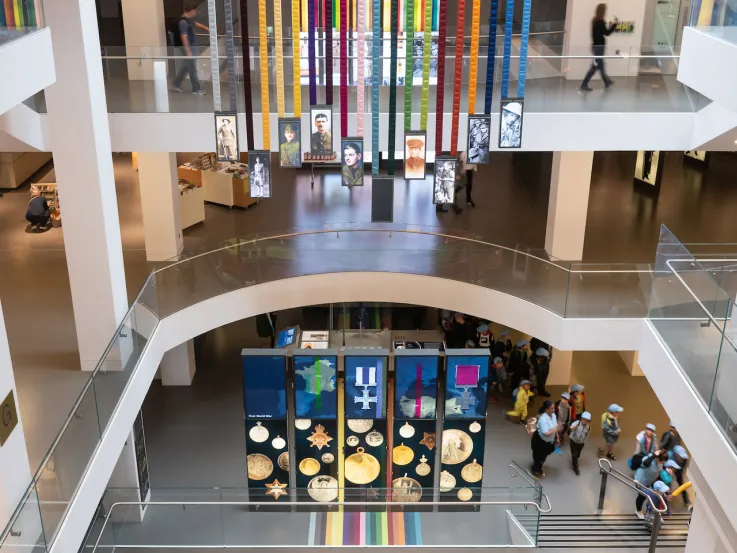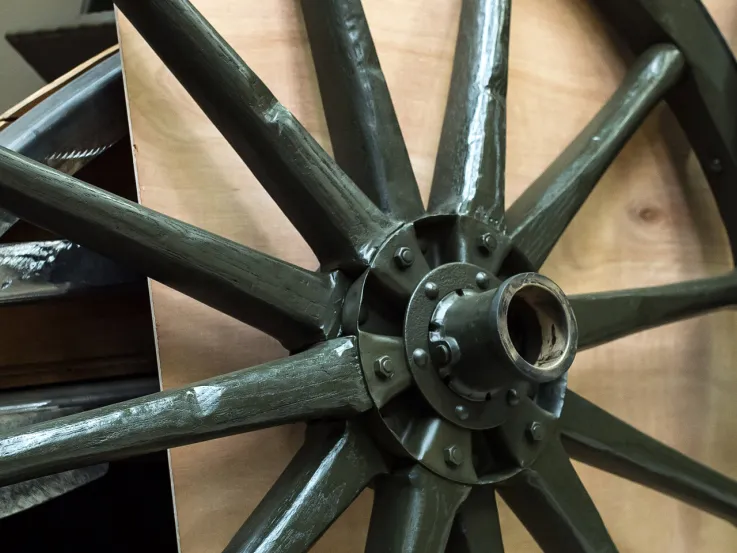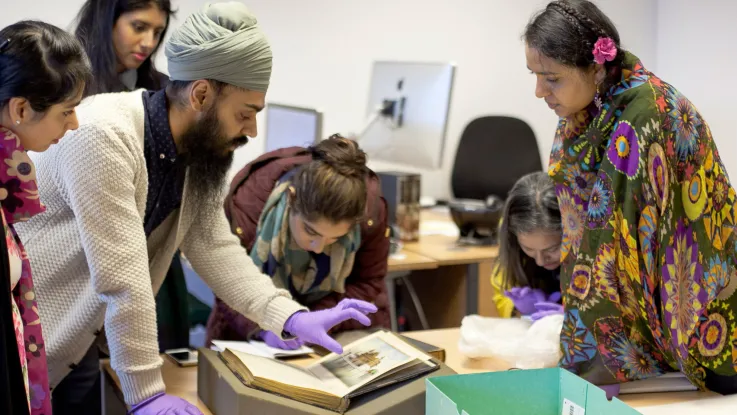Enquiry and Access Guidance
Introduction
In accordance with its Royal Charter (159KB) and the Freedom of Information Act 2000, the National Army Museum welcomes enquiries about its work and its collections.
It also seeks to encourage public interest in and research into the history and traditions of the land forces of the British crown. These aims are met in a variety of ways that are intended to reach as many people as possible.
They include:
- Displays within the Museum in Chelsea
- Loans of exhibits to other museums and galleries worldwide
- Exhibitions and other information on the Museum's website
- Books, leaflets and other publications
- Taught sessions for educational and other groups and the general visitor both at Chelsea and elsewhere
- Representation at heritage events
- Special events for families and other audiences at Chelsea
- Access by prior appointment to items not on display
- Provision of photographs and other copies of items in the Collection, subject to copyright law and the Museum's regulations. A charge is usually made for this service
- A shop stocking books, models and other items appropriate to the Museum's mission and Collection.
These services are largely funded by a Grant-in-Aid from the Ministry of Defence, resourced, staffed and - whenever resources permit - provided free of charge to anyone wishing to use them.
The relative ease with which information can be provided on the internet, together with the high cost of providing bespoke answers, means that the Museum will continue to increase the information it provides in electronic formats.
Making enquiries to the Museum
Enquiries are welcomed through the following channels:
- Email: info@nam.ac.uk
- Telephone: 020 7730 0717
- Website: https://www.nam.ac.uk/contact-us
- Post: National Army Museum, Royal Hospital Road, London SW3 4HT
Our switchboard team will assist with any enquiries submitted by telephone, forwarding to the relevant individual where relevant. You may be asked to submit a written enquiry, using the contact details above, in order to receive the appropriate level of response.
If you submit an enquiry via social media, such as the National Army Museum’s Facebook account, your question will probably be met with a request to re-submit your enquiry via one of the above written methods.
All Freedom of Information requests must be submitted in writing under the terms of the Freedom of Information Act (2000). Please see the National Army Museum’s Freedom of Information policy for details.
Before you make an enquiry
Is this the best institution to answer your enquiry?
- The National Army Museum is not a repository for soldiers’ service papers. In order to trace the service of soldiers from the First World War or earlier, you must first determine whether or not their war service record survives as some were damaged or destroyed during the Second World War. If it does, it will be kept at the National Archives at Kew.
- Records for the post-1920 period (including the Second World War) are still held by the Ministry of Defence at the Personnel Centre in Glasgow. However, please note that the Ministry of Defence is currently in the process of transferring the personnel records of those who served between 1921 and 1963 to The National Archives. This operation, involving some 9 million records, began in 2022 and will take until 2027 at the earliest to complete.
- Information about soldiers who died in the World Wars can be found at the Commonwealth War Graves Commission.
- Information about medal eligibility and veterans’ badges can be found by contacting the Army Medals Office.
- Often, regimental museums also hold useful information to help with your enquiry, so consider contacting the appropriate museum. Information on how to contact regimental museums can be obtained from the Army Museums Ogilby Trust. The National Army Museum’s Regiments and Corps page is also a very useful resource.
Can you obtain the answer to your enquiry from elsewhere?
Many enquiries we receive relate to general information that can be obtained from other sources. Before submitting your enquiry, check the following alternative sources of information:
- The stories and articles on National Army Museum’s website
- Other reliable websites on the internet, such as other military museums
- Published resources in your local library
- Your local history or military museum
Are you aware of the following?
All enquiries are handled by the Museum’s Archive, Library and Information team. We aim to respond to all enquiries within 20 days.
The Museum is only able to respond to enquiries related to the Museum’s collections, together with offering guidance enabling our users to conduct their own research.
It is not possible to undertake research for individuals.
Accessing the Museum’s collections
Access to archives, books and photographs held by the National Army Museum is available by appointment in the Museum’s Templer Study Centre, Tuesday to Friday, 10.00am to 4.30pm. Further details on registering as a new reader and identifying collections can be found online, together with terms of access.
Prior appointment is advisable for consulting archive material due to access restrictions which may be placed on collections which require conservation, contain personal data, or have been restricted for other reasons.
Viewing appointments for all other items held in the Museum’s Study Collection are available at our Collections Store in Stevenage. These include works of art, uniform and other larger objects. Appointments are essential and available by emailing info@nam.ac.uk. Terms of access to stored collections are available on the Museum’s website.
Identification and valuation requests
The Museum is unable to identify objects or provide valuations. To avoid disappointment, please do not bring items into the Museum for identification or valuation.
Please note that you may be committing an offence by carrying certain types of firearms, edged weapons, radioactive or hazardous materials without appropriate documentation. You will not be permitted to enter the Museum with any such items under any circumstances.



